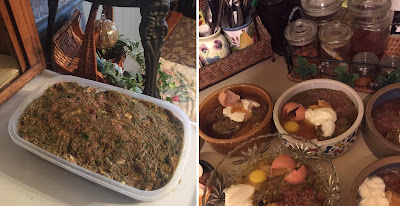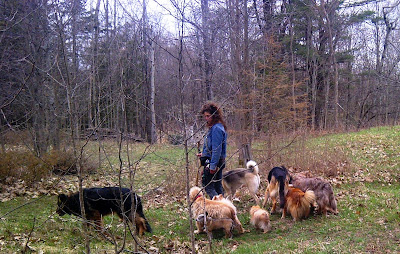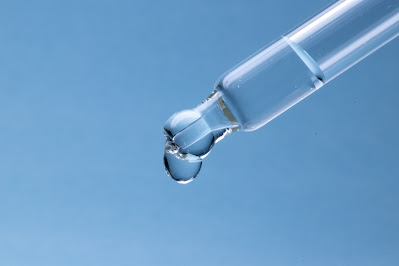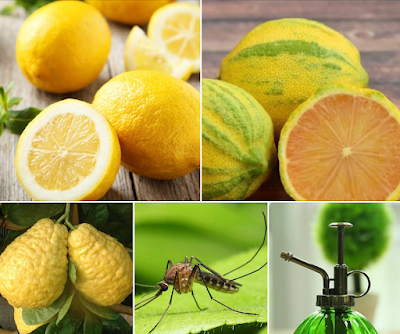Salt in Dog and Cat Food and Treats - A Bad Ingredient
Not all types of salt are good for your dog and cat. Most of the salt used in dog and cat food is a toxin. Find out which type of salt is toxic and which salt is health supporting.
★ 6.5 min read
In this article:
1. Inappropriate (Bad) Salt Used by Most Pet Food Companies
- A serious health threat to your dog and cat
- Iodized salt damages the body's normal pH level
- Anti-caking agents - a source of toxins, carcinogens
2. Health Damaging Effects of Iodized Salt
3. AAFCO Certification is Meaningless
4. Pet Food That Contains Iodized Salt
5. Pet Treats That Contain Iodized Salt
6. Natural Sodium
- An Essential Dietary Component
- Full Spectrum Salt
1. Inappropriate (Bad) Salt Used By Pet Food Companies
A Serious Health Threat to Your Dog and Cat
Most salt used in pet food and treats is iodized salt (table salt).
Natural sodium is an essential mineral for dogs and cats. A dogs and cat's species appropriate provides natural sodium present in the whole food components.
Inorganic
(synthetic chemically processed) sodium damages a dog and cat's health. The common names for inorganic salt are:
- Common table.
- Iodized salt.
- Salt.
Common table salt (iodized salt, salt) is health deteriorating, or in simpler
terms a bad ingredient. It is bad salt.
2. Health Damaging Effects of Iodized Salt
2.1 Iodized Salt Damages the Body's Normal pH Levels
Common table salt is mined from rock. After extraction from rock, the mined salt undergoes intense processing
that strips the salt of valuable mineral content leaving only chloride and
sodium to form an acidifying compound (NaCI).
NaCl has no nutritional value.
NaCI
cannot be absorbed by, or readily eliminated from a dog and cat's body.
NaCI acidifies the body.
Acidification is one of the major factors in chronic disease.
An acidic body is at great risk of inflammatory diseases
(e.g., arthritis, cancer, metabolic issues, urinary tract issues, etc.).
Parasites such as fleas, heartworm, and intestinal
worms are attracted to an acidic body.
2.2 Anti-Caking Agents - A Source of Toxins, Carcinogens
During processing substances are added to iodized salt (salt) to
prevent the salt from binding and clumping. These substances are called ‘anti-caking
agents’.
Anti-caking agents used in salt processing are toxic and
carcinogenic. While these substances simplify the manufacturing process, they cause harm to those that ingest the end product, salt.
Anti-caking agents are NOT listed as an ingredient on
pet food labels.
The FDA, Health Canada, the FSA and other
similar regulatory bodies don't require the listing of incidental (hidden) ingredients.
Let’s take a brief look at these anti-caking agents:
Calcium silicate
- a known irritant to eyes and lungs.
Dicalcium phosphate, tricalcium phosphate and silicon dioxide
- disrupt functionality of the gastrointestinal tract
- eye irritant
- respiratory tract irritant
- skin irritant
Fluoride Sodium Bicarbonate
Contains synthetic form of fluoride that is:
- carcinogenic
- endocrine disrupting
- inflammatory
- toxic
Potassium iodide
- a known mutagen for somatic cells all
cells in the body except reproductive cells.
- toxic to the thyroid
- eye, and skin irritant
Sodium aluminosilicate
A flow agent used in table
salt. It contains aluminum derivatives.
- carcinogenic
- dementia triggering
Sodium ferrocyanide (ferrocyanide, yellow prussiate of soda)
- disrupt functionality of the gastrointestinal tract
- eye irritant
- respiratory tract irritant
- skin irritant
Sugar
Sugar is added to common table salt. GMO corn
syrup (sugar, dextrose) is used to stabilize the iodine. Corn syrup (sugar) is:
- an
inflammatory agent (chronic disease-causing)
- a source of glyphosate
residue (a carcinogen).
On March 20, 2015 the
International Agency for Research on Cancer (IARC) released its findings on the
herbicide glyphosate, concluding that there is “sufficient evidence
of carcinogenicity” based on laboratory studies.
Read the World
Health Organization (WHO) report on IARC’s findings here.
Talc
- a carcinogen.
3. AAFCO Certification is Meaningless
AAFCO allows many toxic ingredients in pet food, in-fact AFFCO demands the inclusion of inappropriate substances in pet food.
Here’s an example taken directly from a popular pet food
manufacturer’s site…
“Salt is a mineral complex of sodium and
chloride. It is obtained by naturally mining salt deposits in the Earth’s
crust. Sodium is essential to maintaining proper acid-base balance, cell
function, and hydration. AAFCO has minimum sodium requirements for pet food to
be compete and balanced”.
First of all, AAFCO is an organization
made-up of members of the Pet Food Industry and its affiliates. AAFCO is NOT an
objective regulatory body, nor is it a government agency. AAFCO is self-interested organization.
Learn more about AAFCO in this article.
After reading the above you know that
salt is a mineral complex of sodium and chloride obtained ‘naturally’ by mining
salt deposits. All good, but they skip mentioning how the salt is highly
processed, contains unlisted toxic ingredients, and has been stripped of all
its bioavailable components. They are correct that ‘sodium’ is essential to
maintaining acid-base balance, cell function, and hydration BUT they missed the
part about defining healthy sodium (organic sodium), vs. inorganic unhealthy
sodium. Correct, AAFCO has a minimum sodium requirement, BUT AAFCO does NOT
define that the requirement must be meet by using ORGANIC bioavailable sodium.
The pet food manufacturer cannot be said to be out-right lying, they simply got
around telling the truth by carefully wording their message to exclude the most
salient points.
4. Pet Food That Contains Common Iodized Salt
The list of companies and products below includes low, medium and
so-called premium pet food and treat products.
Another sad reality – not all raw foods are created equal.
There
are some excellent raw food companies and there are others that make
poor products. Raw food is NOT a panacea, some companies make poorly
formulated raw food products.
A partial list:
- Blue Buffalo
- Beyond Purina
- Chicken Soup for the Soul
- Earthborne
- Evo
- Fancy Feast
- Fresh Pet Select
- Fromm
- Halo
- Hi-Tek Naturals
- Hill’s Prescription
- Hill’s Science Diet
- Hounds and Gato’s
- I and Love and You
- Kirkland Lake
- Merrick (original, grain-free, Whole Earth Farms etc.)
- Natural Choice
- Nature’s Domain
- Nature’s Recipe
- Nature’s Variety Instinct
- Newman’s Own
- Nutrisource
- Nutro
- Old Yeller
- Optimum Pet
- Organix
- Performatrin
- Pedigree
- Petworth
- Pure Balance
- Pure Instinct
- Purina (off-the-shelf and prescription product line)
- Pura Vita
- Rachel Ray
- Royal Canin (off-the-shelf and prescription product line)
- Superior Premium Oven Baked Food
- Taste of The Wild
- Wellness Core
5. Pet 'Treats' that Contain Common Iodized Salt
A partial list:
- Blue Buffalo Health Bars
- Blue Buffalo Stix
- Castor & Pollux Chicken Jerky Strips
- Caesar’s Softies
- EOS Plato Treats
- Etta Says! Chews Treats
- Etta Says! Bitz Treats
- Green Bark Gummies
- Dick Can Patten’s Natural Balance Treats
- Kirkland Lake
- Kong Easy Treats
- Medi-Cal Chews
- Merrick
- Milk Bone Treats
- Old Mother Hubbard Treats
- Pedigree Dentabone
- Pup-Peroni Flavored Snacks
- Purina Beggin’ Strips
- Purina Busy Bone
- Smart Bones Chews
- Solid Gold Lamb Jerky Treats
- Temptations Treats
- Trader Joes Organic Chicken and Brown Rice Sticks
- Wellness Pet Food Treats
- Whole Foods – Whole Paws Dog Training Treats
- Zuke’s Mini Naturals Treats
Surprise, surprise – some of the biggest users of common
table salt? The prime suppliers of veterinarian prescription food, Hills, Royal Canin and Purina. These three pet food
companies are also the largest user of GMO corn, GMO soy – species inappropriate,
carcinogenic, moisture robbing fillers. Ask yourself why your veterinarian is pushing
these very expensive-to-purchase, health deteriorating dog and cat ‘food’
products.
Salt added to pet food is ‘just’ one more reason why many
commercial pet food products are NOT good for long-term health. While dry, highly processed dog and cat food
top the list of ‘bad’, there are many highly processed canned/wet products that
are not health supporting – and, unfortunately the same is true for some raw
and raw freeze dried foods.
Make sure you read your pet food and treat labels carefully.
Failure to pay attention to the presence of this toxic ingredient can and does
contribute to, and cause chronic health conditions.
6. Natural Sodium
6.1 An Essential Dietary Component for Dogs and Cats
A dogs and cats’ natural diet (species appropriate) raw diet, does
not contain inorganic salt.
To maintain health, dogs and cats require
natural sodium (Na) which is present in a whole food diet – raw meats, healthy fats, appropriate raw botanicals and full spectrum salt.
Natural sodium (organic salt) is essential
to the health of your pet.
Full spectrum natural salt is alkalizing rather than acidifying.
Natural sodium in a species appropriate diet IS health protecting.
Species
appropriate diet are NOT highly processed dog food, and cat food
products.
Many pet food companies use words inappropriately,
in order to market their products.
Use of a term/word, is NOT a guarantee that the
product conforms to the consumers assumed meaning of the word species appropriate.
The definition of species appropriate diet is provide in this article.
6.2 Full Spectrum Salt
Full spectrum salt is a source of natural sodium.
Full spectrum salt is not the same as iodized salt.
Full spectrum salt is health
promoting.
Full spectrum salt is rich in bio-available vitamins and minerals - including essential
organic sodium. While some full spectrum salts loose some of their nutrients
when heated, Black Indian salt attains its best nutritional profile when
heated. Even if heated other full spectrum salts (i.e. Celtic Salt, Hawaiian red volcanic salt, Himalayan
pink crystal salt, and Natural gray sea salt), would still be a better
choice than common table salt.
Full Spectrum salt costs more than common table salt. It’s as simple as that – maintaining high profit margins is more important to these companies, than striking a balance between desire to profit and your pet's health.
Holistic Diet, Nutrition, Wellness Services Tailored to Your Individual Dog and Cat
For information about my holistic diet, nutrition and wellness services, visit my holistic wellness services page.
Maintain good health | Address acute and chronic health issues | Pre and post surgery support and recovery
My holistic wellness services are available worldwide via video consultation.
🌎 USA | Canada | UK | Europe | Australia | New Zealand | Asia | South and Central America | Africa | UAE
📱FaceTime | Facebook | Skype | WhatsApp
To set-up your holistic wellness consultation get in-touch via email, go to my contact me page.
Holistic Behavioral Services for Your Dog
For information about my holistic behavioral services, visit my holistic behavioral services page.
For dogs of all ages, sizes and breeds.
My behavioral services are available worldwide via video consultation.
🌎 USA | Canada | UK | Europe | Australia | New Zealand | Asia | South and Central America | Africa | UAE
📱FaceTime | Facebook | Skype | WhatsApp
To set-up your holistic behavioral session get in-touch via email, go to my contact me page.
Affiliations to Companies
✓ None.
✓ I don't sell food, supplements, or other products.
✓ I'm not aligned with any companies.
Article by Karen Rosenfeld.










